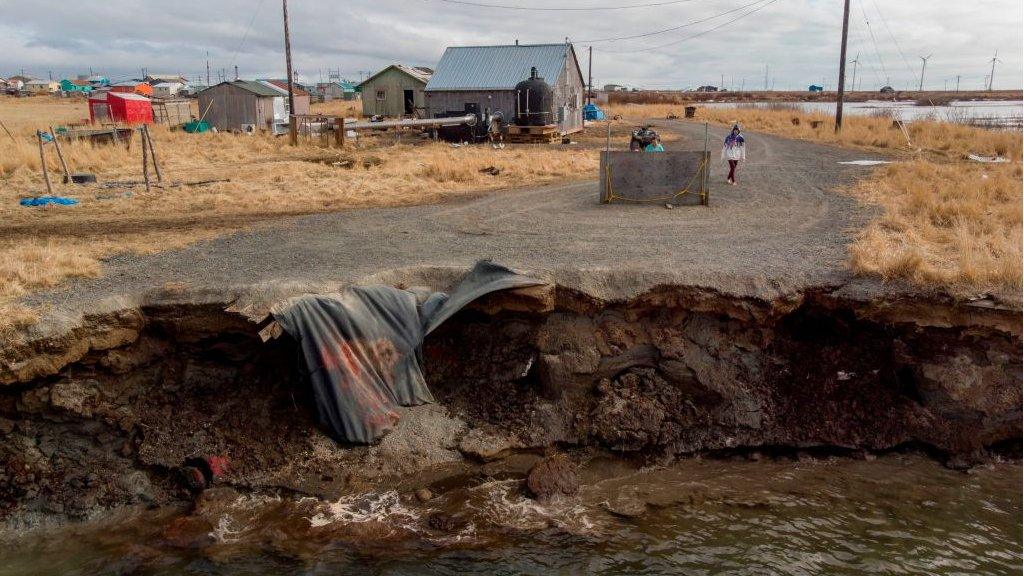Suffolk kayaker hails Greenland 'poo-centric' expedition as a success
- Published
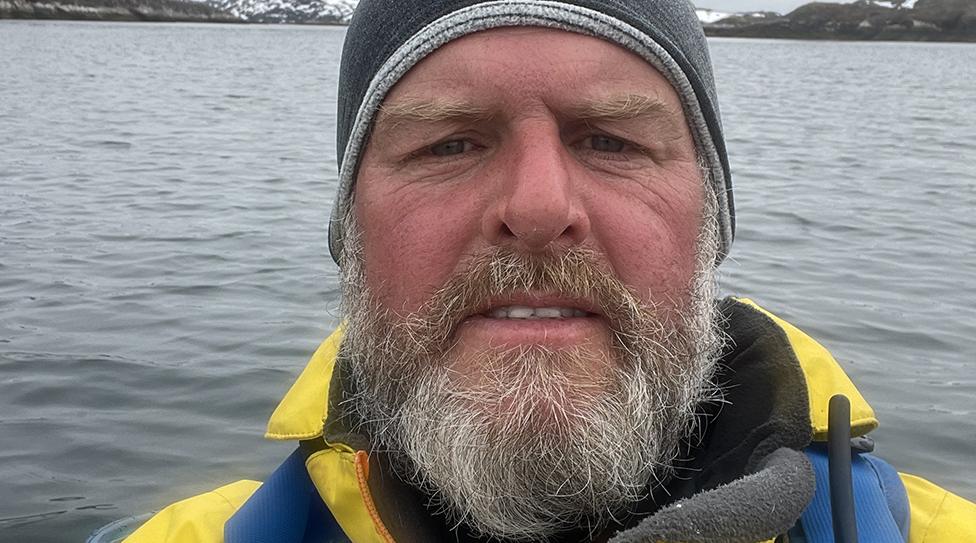
Mike Keen carried out two different scientific research projects during the 2,200km expedition
A man who kayaked more than 2,000km (1,242 miles) in icy waters in Greenland as part of a "poo-centric expedition" has hailed it a success despite the trip being cut short by bad weather.
Mike Keen, 54, from Suffolk, set off on 20 April paddling from Qaqortoq in the south heading north.
He collected poo samples from sea mammals to check microplastic levels and ate only a Greenlandic diet as part of a microbiome study.
He plans to finish the trip next year.
The Greenlandic diet included only food that could be foraged or hunted, meaning Mr Keen ate mainly sea mammals and fish and no fruit or vegetables for nearly three months.
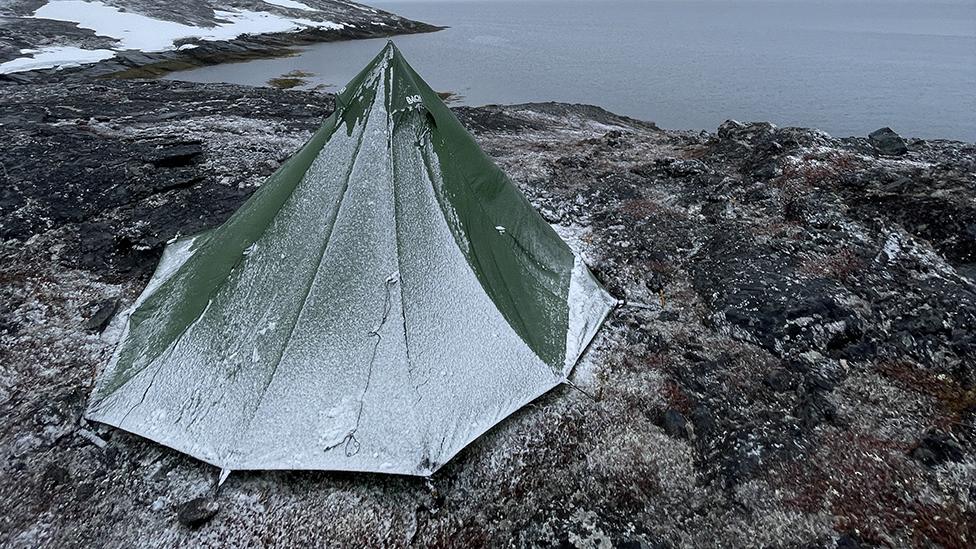
He said getting up after a night rough sleeping was "tough going"
The 54-year-old chef, from Holton St Mary, near East Bergholt, said he was not surprised the trip was cut short by large swathes of impassable and "dangerous" sea ice, as conditions had been about 10 degrees colder than normal for this time of year.
He said: "The last section was always going to be a question mark and for an expedition focused on climate change and the environment to be cut short on that last 10 or 15% was kind of ironic - and very fitting for it I think."
Throughout the trip he tackled bad weather with frequent storms, including one where he was unable to leave his frozen tent for three days.
Despite the shorter than expected expedition, Mr Keen said he was "really happy" with the 2,200km he completed and that all the science projects were finished.
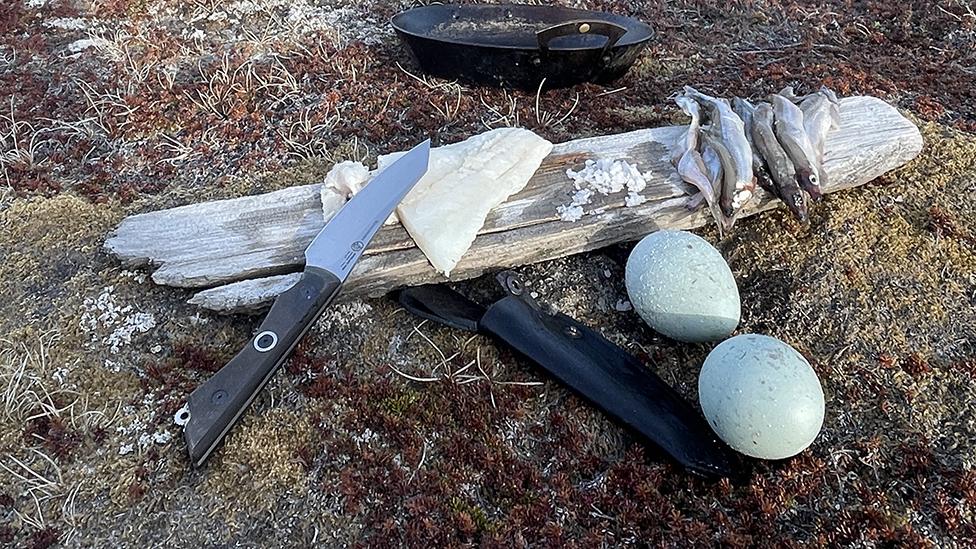
Mr Keen is eating a Greenlandic diet, of food hunted or foraged, to see how it changes his physiology and mental wellbeing
The samples of sea mammal poo he is collecting will be sent back to laboratories in Greenland's capital - Nuuk - to be analysed for microplastics.
Upon returning home, Mr Keen also underwent a umber of tests to see how the traditional Icelandic diet had affected his health.
After months of kayaking every day and the limited diet, he said he has "never been fitter".
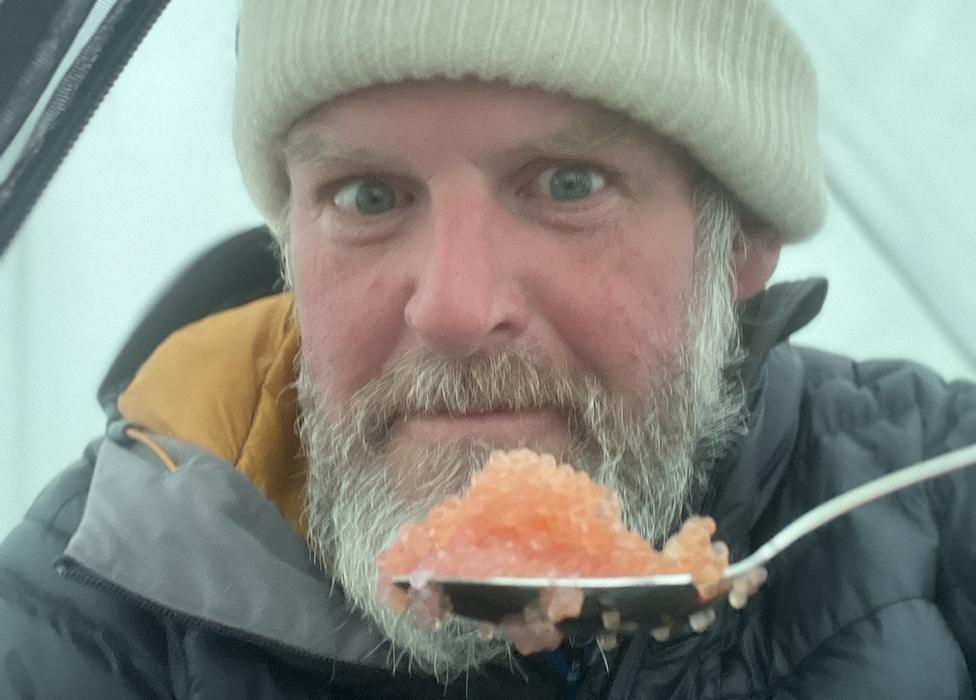
The high fat and protein diet of fish, seal, shrimp and reindeer also "took some time getting used to," Mr Keen said
"It will be interesting to see the blood results and if there's an increase in heavy metals in the blood from eating sea mammals, seals and whales, they have been polluted for decades now," he said.
Mr Keen is aiming to go back in August or September next year with a documentary crew to complete the last section of the expedition.
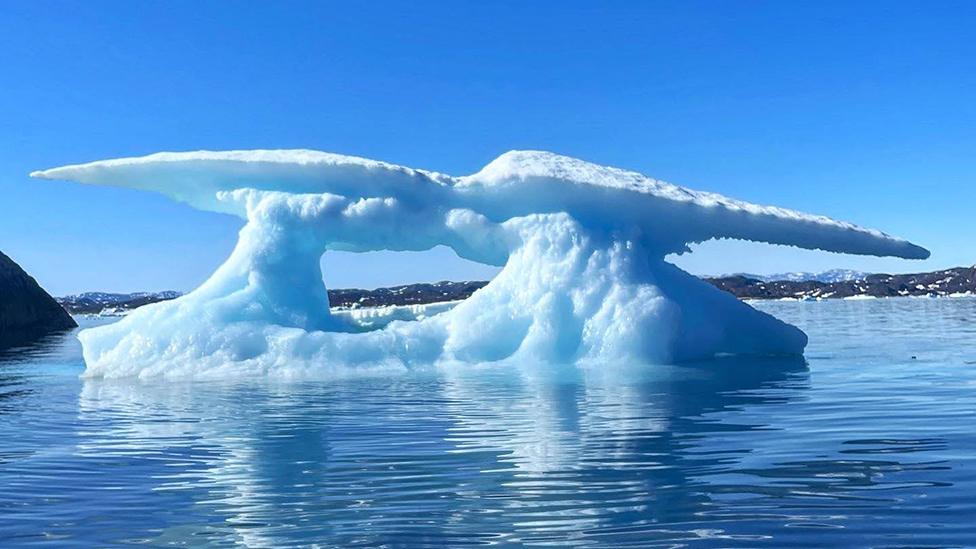
Mr Keen said the cold had been the "tough bit" so far
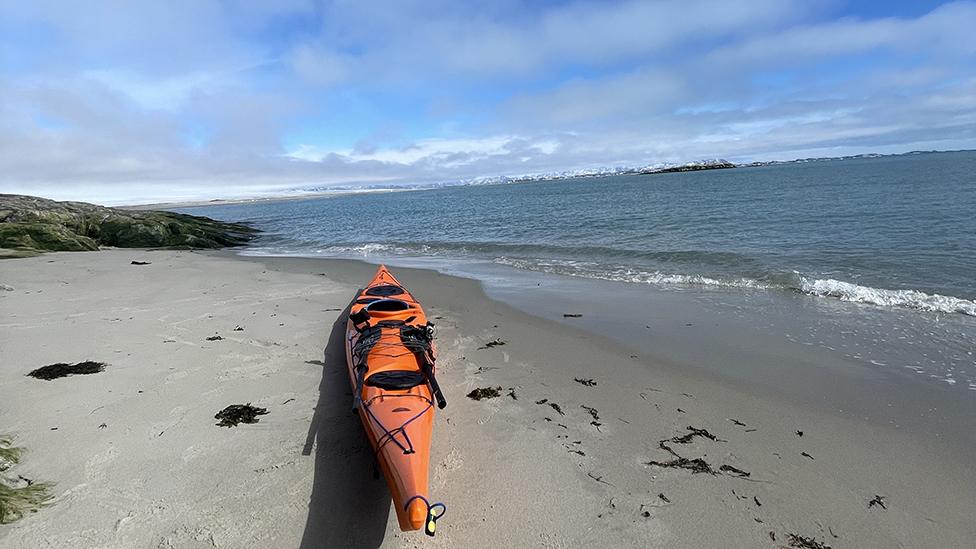
But once he is out on the water, it is OK, he added

Find BBC News: East of England on Facebook, external, Instagram, external and Twitter, external. If you have a story suggestion email eastofenglandnews@bbc.co.uk, external
Related topics
- Published15 May 2023
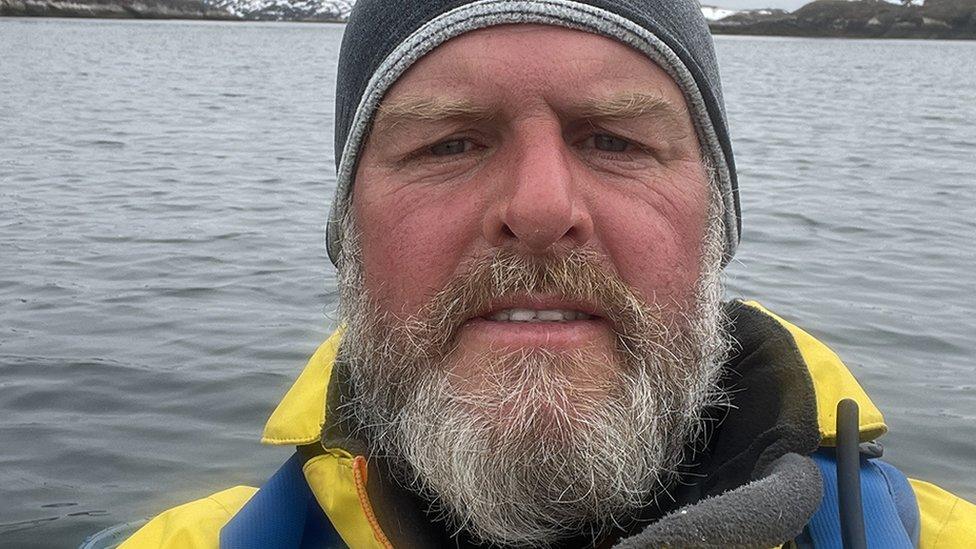
- Published9 June 2022
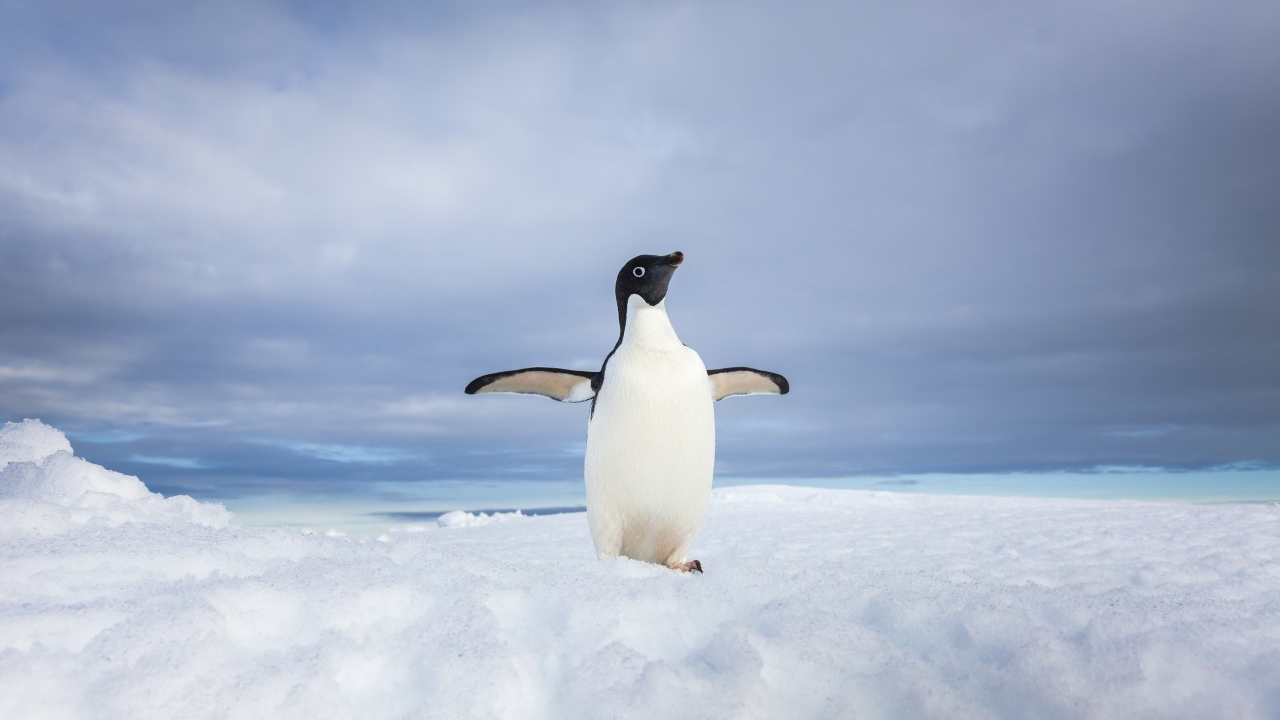
- Published11 January 2022
